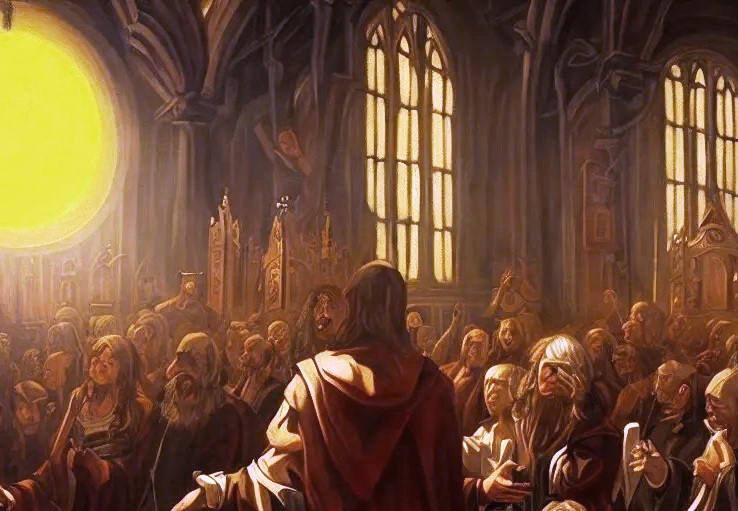Difference between revisions of "Advocatus Diaboli"
Tao alexis (talk | contribs) (Created page with "'''Advocatus Diaboli''', the "devil's advocate," is a popular title given in the Roman Catholic Church to the Promoter of the Faith, an official of the Congregation of Rites (...") |
Tao alexis (talk | contribs) |
||
| (2 intermediate revisions by the same user not shown) | |||
| Line 1: | Line 1: | ||
| − | '''Advocatus Diaboli''', the "devil's advocate," is a | + | [[File:Advocatus Diaboli.jpg|right|560px|thumb]] |
| + | '''Advocatus Diaboli''', the "devil's advocate," is a well-known title in the [[Roman Catholic Church]] and is given to the Promoter of the Faith, an official within the Congregation of Rites, a part of the Curia Romana, which comprises the administrative institutions of the Holy See. The primary responsibility of the Advocate is to critically examine and present counter-arguments against the evidence and testimonies put forward in support of a candidate's [[Beatification|beatification]] or [[Canonisation|canonisation]] as a saint. | ||
| − | + | This office was established in 1587 during the papacy of Pope Sixtus V. However, the first formal mention of such an officer can be traced back to the canonization of St. Lawrence Justinian under the papacy of Pope Leo X (1513-1521). | |
| − | + | There is speculation about the existence of similar entities associated with figures like Asmodeus and other Dark Lords, but these claims lack credible sources to support them. The hypothetical purpose of these entities, if they were to exist, would be comparable to that of the Catholic Church's Advocatus Diaboli. They might serve as adversaries, cautioning against interference in worldly affairs or suggesting ways in which evil could potentially triumph by promoting actions contrary to the nature of evil itself. However, such claims are not substantiated by reliable evidence. | |
| − | [[Category: Religious Belief]] | + | [[Category: Religious Belief]][[Category: Reviewed]] |
Latest revision as of 17:43, 7 November 2023
Advocatus Diaboli, the "devil's advocate," is a well-known title in the Roman Catholic Church and is given to the Promoter of the Faith, an official within the Congregation of Rites, a part of the Curia Romana, which comprises the administrative institutions of the Holy See. The primary responsibility of the Advocate is to critically examine and present counter-arguments against the evidence and testimonies put forward in support of a candidate's beatification or canonisation as a saint.
This office was established in 1587 during the papacy of Pope Sixtus V. However, the first formal mention of such an officer can be traced back to the canonization of St. Lawrence Justinian under the papacy of Pope Leo X (1513-1521).
There is speculation about the existence of similar entities associated with figures like Asmodeus and other Dark Lords, but these claims lack credible sources to support them. The hypothetical purpose of these entities, if they were to exist, would be comparable to that of the Catholic Church's Advocatus Diaboli. They might serve as adversaries, cautioning against interference in worldly affairs or suggesting ways in which evil could potentially triumph by promoting actions contrary to the nature of evil itself. However, such claims are not substantiated by reliable evidence.
